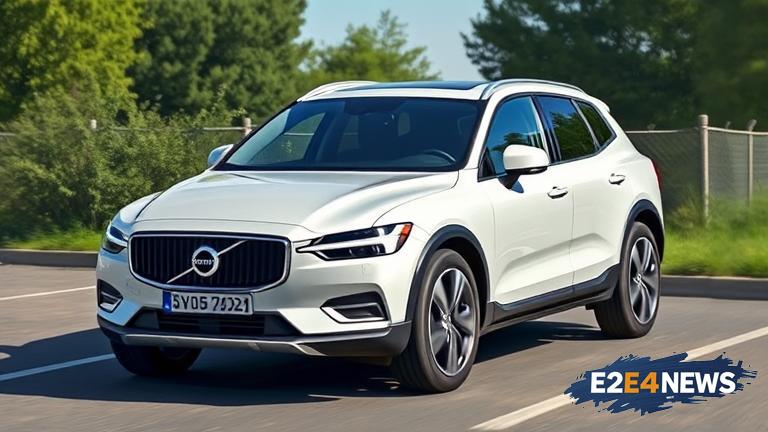A recent incident involving a Volvo electric vehicle has led to a lawsuit being filed against the company. The owner of the vehicle claims that their car suddenly accelerated without warning, causing a potentially hazardous situation. According to the lawsuit, the vehicle’s unexpected acceleration was not triggered by any input from the driver, raising questions about the car’s safety features and quality control. The incident has sparked concerns among electric vehicle owners and has led to a wider discussion about the need for stricter safety regulations in the industry. Volvo has not commented on the lawsuit, but the company has a reputation for prioritizing safety and has implemented various measures to prevent such incidents. The lawsuit alleges that Volvo was negligent in designing and manufacturing the vehicle, and that the company failed to provide adequate warnings about the potential risks associated with the car’s acceleration system. The plaintiff is seeking damages and a recall of the affected vehicles. The incident has also raised questions about the reliability of electric vehicles and the potential risks associated with their use. While electric vehicles have gained popularity in recent years due to their environmental benefits and lower operating costs, concerns about their safety and reliability have persisted. The lawsuit against Volvo is likely to have significant implications for the company and the wider electric vehicle industry. It may lead to increased scrutiny of safety protocols and quality control measures, and could potentially result in changes to industry standards and regulations. The incident has also highlighted the importance of transparency and communication between manufacturers and consumers, particularly when it comes to safety concerns. As the demand for electric vehicles continues to grow, manufacturers will need to prioritize safety and reliability in order to maintain consumer trust and confidence. The lawsuit against Volvo serves as a reminder of the potential risks associated with electric vehicles and the need for ongoing monitoring and evaluation of their safety features. In response to the lawsuit, Volvo may need to re-examine its safety protocols and quality control measures to ensure that its vehicles meet the highest standards of safety and reliability. The company may also need to provide additional training to its employees and dealerships on the safe operation and maintenance of its electric vehicles. Furthermore, the incident may lead to a review of industry-wide safety standards and regulations, potentially resulting in changes to the way electric vehicles are designed, manufactured, and tested. Ultimately, the lawsuit against Volvo highlights the importance of prioritizing safety and reliability in the development and manufacture of electric vehicles, and the need for ongoing vigilance and monitoring to ensure that these vehicles meet the highest standards of safety and performance.
